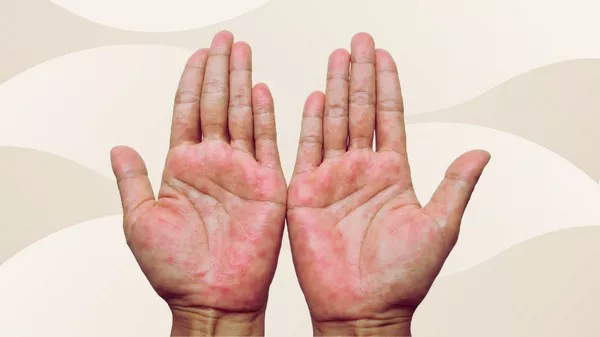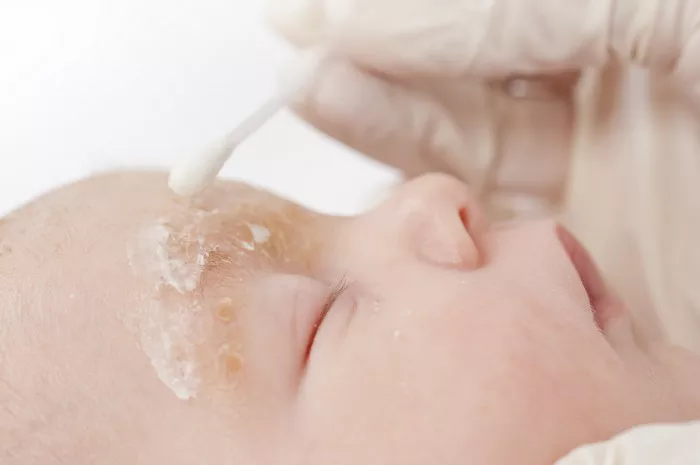Eczema, or atopic dermatitis, is a chronic skin condition characterized by dry, itchy, and inflamed skin. Pregnancy can often exacerbate this condition due to hormonal changes and increased skin sensitivity. Treating eczema during pregnancy requires careful consideration to ensure both the mother’s comfort and the baby’s safety. This article will explore various treatment options, lifestyle modifications, and preventive measures to effectively manage pregnancy eczema.
Understanding Pregnancy Eczema
What is Eczema?
Eczema is a common skin disorder that results in patches of skin becoming inflamed, itchy, red, cracked, and rough. Blisters might sometimes occur. It is part of a group of conditions called atopic conditions, which also includes asthma and hay fever. Eczema is often hereditary and can be triggered by environmental factors.
Why Does Eczema Worsen During Pregnancy?
During pregnancy, the body undergoes significant hormonal changes that can affect the skin. Increased levels of estrogen and progesterone can lead to heightened skin sensitivity and altered immune responses, making the skin more susceptible to flare-ups. Additionally, the physical and emotional stress associated with pregnancy can aggravate eczema.
Identifying Pregnancy-Safe Treatments
Topical Treatments
1. Moisturizers:
Regular use of moisturizers is fundamental in managing eczema. They help to maintain skin hydration, which is crucial in preventing eczema flare-ups. Look for products free from fragrances and harsh chemicals to avoid further irritation. Emollient creams and ointments are generally more effective than lotions due to their thicker consistency.
2. Topical Steroids:
Topical corticosteroids are commonly prescribed for eczema. However, during pregnancy, it’s essential to use them under medical supervision. Low to moderate potency steroids, such as hydrocortisone, are typically considered safe. The use of potent steroids should be limited and monitored closely by a healthcare provider.
3. Calcineurin Inhibitors:
Calcineurin inhibitors like tacrolimus and pimecrolimus are non-steroidal treatments that can be used for eczema. These medications are usually considered when steroid use needs to be minimized. Although limited studies are available on their use during pregnancy, they are generally deemed safe for short-term use under medical guidance.
Oral Medications
1. Antihistamines:
Oral antihistamines can help manage severe itching associated with eczema. Non-sedating antihistamines such as loratadine and cetirizine are preferred during pregnancy. Sedating antihistamines like diphenhydramine can be used occasionally, especially at night to aid sleep, but should be taken with caution.
2. Systemic Steroids:
In severe cases of eczema, systemic steroids may be prescribed. However, their use during pregnancy is limited due to potential risks to the fetus. If necessary, the lowest effective dose for the shortest duration should be administered, and only under strict medical supervision.
3. Antibiotics:
If eczema becomes infected, oral antibiotics may be required. Commonly prescribed antibiotics like penicillin and cephalosporins are generally safe during pregnancy. It is crucial to complete the entire course of antibiotics to effectively treat the infection.
Lifestyle Modifications
Skincare Routine
1. Gentle Cleansing:
Use mild, fragrance-free cleansers to wash the skin. Harsh soaps can strip the skin of natural oils, exacerbating dryness and irritation. Lukewarm water is preferable to hot water, which can further dry out the skin.
2. Bathing Practices:
Short, warm baths with added colloidal oatmeal or baking soda can help soothe itchy skin. Avoid long, hot baths, which can dehydrate the skin. After bathing, gently pat the skin dry with a soft towel and immediately apply a thick moisturizer to lock in moisture.
3. Sun Protection:
Pregnancy can increase skin sensitivity to the sun, making it essential to use a broad-spectrum sunscreen with an SPF of at least 30. Choose sunscreens that are free from perfumes and harsh chemicals to prevent irritation.
SEE ALSO: How to Heal Eczema Patches
Diet and Nutrition
1. Hydration:
Staying hydrated is vital for overall health and skin hydration. Pregnant women should aim to drink at least 8-10 glasses of water a day. Adequate fluid intake helps maintain skin elasticity and moisture.
2. Balanced Diet:
A balanced diet rich in vitamins and minerals supports skin health. Foods high in omega-3 fatty acids, such as salmon and flaxseeds, can help reduce inflammation. Vitamin E, found in nuts and seeds, also supports skin healing and repair.
3. Avoiding Trigger Foods:
Certain foods can trigger eczema flare-ups. Common culprits include dairy, eggs, nuts, and gluten. Keeping a food diary can help identify and eliminate trigger foods from the diet.
Stress Management
1. Relaxation Techniques:
Stress is a known trigger for eczema. Pregnant women can benefit from relaxation techniques such as prenatal yoga, meditation, and deep-breathing exercises. These practices can help reduce stress levels and improve overall well-being.
2. Support Systems:
Having a strong support system during pregnancy is crucial. Joining support groups, attending prenatal classes, and talking to friends and family can provide emotional support and reduce stress.
Preventive Measures
Avoiding Irritants
1. Clothing:
Wear loose, breathable clothing made from natural fibers like cotton. Avoid synthetic fabrics and wool, which can irritate the skin. Washing new clothes before wearing them helps remove any irritating chemicals.
2. Household Products:
Choose hypoallergenic laundry detergents and avoid fabric softeners. Household cleaning products should also be free from harsh chemicals and fragrances.
3. Environmental Control:
Maintain a cool, humid environment at home. Using a humidifier can add moisture to the air, preventing the skin from becoming too dry. Avoiding sudden temperature changes and using gentle heating and cooling methods can also help.
Regular Prenatal Check-ups
Regular prenatal check-ups are essential for monitoring the health of both the mother and the baby. Informing healthcare providers about any eczema flare-ups allows for timely intervention and adjustment of treatment plans. Collaborative care involving dermatologists and obstetricians can ensure optimal management of pregnancy eczema.
Natural Remedies
Safe Home Remedies
1. Aloe Vera:
Aloe vera gel has soothing and anti-inflammatory properties. Applying pure aloe vera gel to affected areas can help reduce itching and inflammation. Ensure the product is free from added chemicals and preservatives.
2. Coconut Oil:
Coconut oil is an effective moisturizer and has antibacterial properties. Applying virgin coconut oil to dry, eczema-prone areas can help maintain skin hydration and reduce the risk of infection.
3. Oatmeal Baths:
Colloidal oatmeal has anti-inflammatory properties and can soothe itchy skin. Adding finely ground oatmeal to bathwater creates a soothing and moisturizing bath that can provide relief from eczema symptoms.
Caution with Herbal Remedies
While many natural remedies are safe, some herbs and essential oils can be harmful during pregnancy. Always consult a healthcare provider before trying any new herbal treatments to ensure they are safe for use during pregnancy.
When to Seek Medical Advice
Recognizing Severe Symptoms
While mild eczema can often be managed with over-the-counter treatments and home remedies, certain symptoms require prompt medical attention. These include:
- Severe itching that disrupts sleep or daily activities.
- Signs of skin infection, such as increased redness, warmth, pus, or fever.
- Extensive skin involvement covering a large area of the body.
- Lack of improvement with standard treatments.
Specialist Consultation
For persistent or severe eczema, consulting a dermatologist is advisable. Dermatologists can offer specialized treatments and tailored advice for managing eczema during pregnancy. Regular follow-ups with a dermatologist can help monitor the condition and adjust treatment plans as necessary.
Conclusion
Managing eczema during pregnancy involves a multi-faceted approach that prioritizes both maternal comfort and fetal safety. By using pregnancy-safe topical treatments, making lifestyle modifications, and adopting preventive measures, pregnant women can effectively control eczema symptoms. Regular prenatal care and consultation with healthcare providers ensure that both the mother and baby remain healthy throughout the pregnancy. With careful management, eczema need not overshadow the joy of pregnancy.
Related Topics:


























